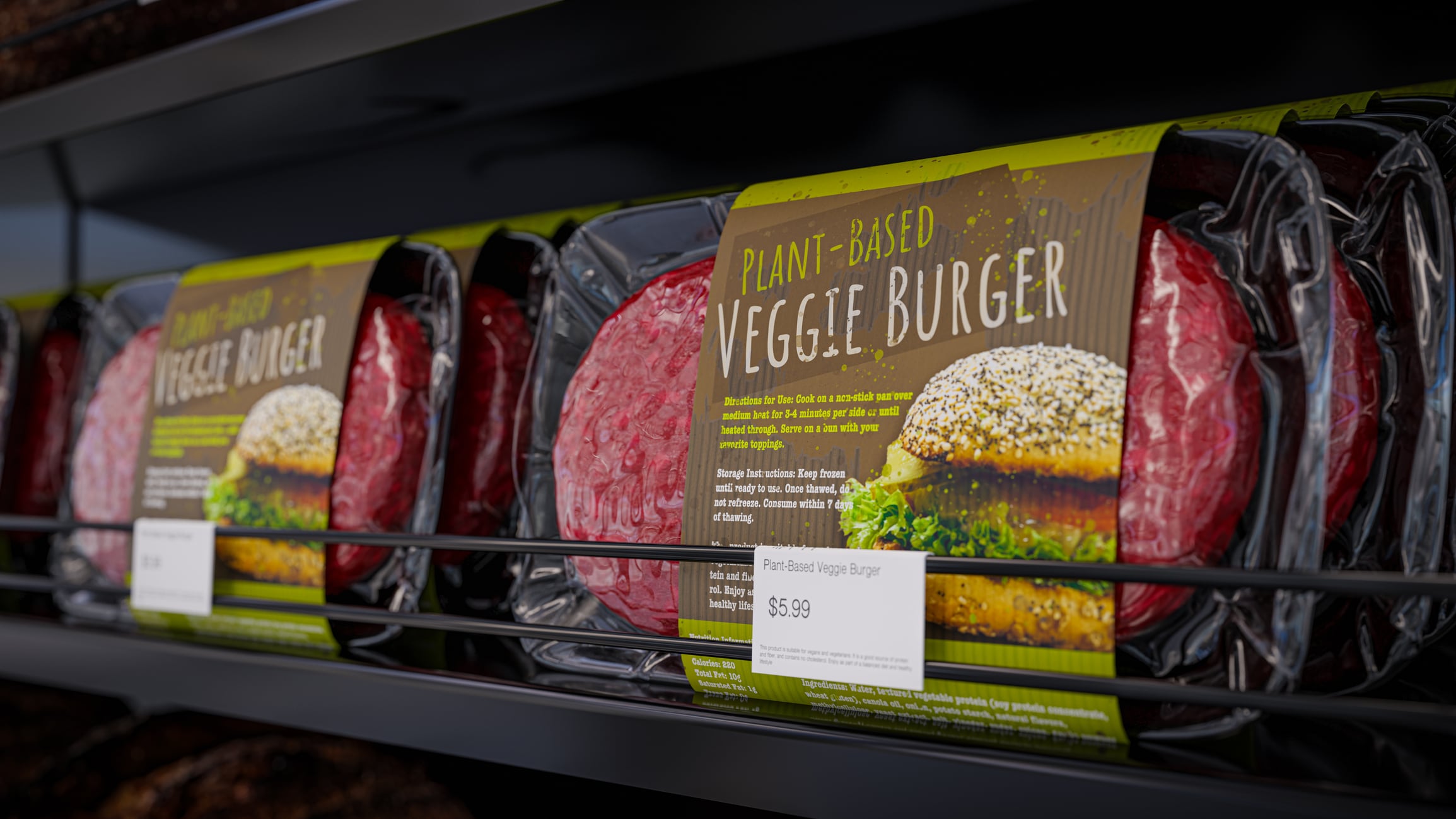What is the EU ‘meaty names’ ban about? Summary
- European Parliament voted to ban meat terms on plant-based foods
- Ban includes words like burger, sausage, steak and escalope
- Plant-based firms say ban misleads no one and harms sustainability
- Ban unlikely to pass due to weak legal basis, lawyer suggests
- Ban could harmonise rules across EU, limiting naming flexibility everywhere
Last week, the European Parliament voted in favour of a ban on ‘meaty’ names for meat-free substitutes.
If the ban is passed, only meat products will have the right to bear names such as “burger”, “sausage”, and “steak”.
The ban was introduced as an amendment to a broader proposal to review regulations around the EU’s Common Market Organisation (CMO).
Companies which sell meat alternatives are bracing themselves for the ban. But how significant could its impact be?
How have plant-based companies reacted?
The ban will significantly affect meat alternative companies that operate in Europe.
Many have criticised the ban. “At a time when Europe faces the urgent challenges of the climate crisis, biodiversity loss, and the need to fix our unsustainable food system, it’s regrettable that energy continues to be spent revisiting an issue that consumers settled long ago,“ says David Flochel, CEO of mycoprotein giant Quorn Foods.
“In 40 years, not once has a customer told us they bought a Quorn product believing it to be meat. ”
Fearing that the ban would create unnecessary regulatory burden, Flochel calls on the Parliament, Council and Commission to “focus on policies that accelerate the shift to an environmentally sustainable diet”.
French plant-based bacon company La Vie also reacted to news of the ban.
“No one is misled by the term ‘plant-based lardons’ on packaging — no more than by terms such as ‘salmon lardons’ or ‘poultry lardons’," said CEO Nicolas Schweitzer.
He suggested that the ban was motivated by a desire to slow the growth of the plant-based sector, which is responding to consumer demand for more sustainable versions of products that are traditionally animal-sourced.
Meanwhile, not all companies are feeling the pinch. “This won’t affect us, as we no longer follow EU rules,” explains Mark Cuddigan, CEO of UK brand THIS.
“In fact, this is the first positive thing I can think of that has come from Brexit. Since it doesn’t impact our home market, we haven’t lost any sleep planning any name changes.”
Will the ban really be implemented?
The ban’s journey through Parliament is one of the most significant stages of putting it into law. But it’s not the final one. The proposal must still be discussed in interinstitutional talks between the Parliament, Commission and Council.
In the view of Katia Merten-Lentz, partner at law firm Food Law Science and Partners, the amendment is unlikely to hold. This is because it does not align well with the proposal in which it was originally included.
The proposal in question is focused on strengthening farmers’ contractual position, she explains, as well as value sharing in the food supply chain. Labelling and product naming are regulated by a different framework.
For an amendment to be adopted, she points out, it must have a direct link to the proposal. However, she admits that “what qualifies as ‘direct’ could always be debated”.

Previous attempts to ban ‘meaty’ names, such as one in 2020, have failed. The success this one has seen so far may be due to a different political climate, suggests Merten-Lentz.
In 2020, debates over food labelling were far from political priorities. In contrast, now “agricultural discontent has become a major political issue.”
Particularly in France, farmers have been protesting over issues such as environmental constraints, falling incomes, and a perceived lack of recognition for their work.
“Against this backdrop, French MEPs sought to send a strong political message of support to livestock farmers, to show that they ‘stand with’ them and value the cultural and economic importance of animal farming in France.”
The rise of alternative protein products, which are encouraged by sustainability goals, may have intensified the situation further.
Scope of the ‘meaty names’ ban
Before Parliament voted in favour of the ban, there was also another ban in the pipeline, which would have been less extensive, leaving out more generalised words such as ‘steak,’ ‘sausage’ and ‘burger’. This one is more wide-ranging.
While the proposal only mentioned seven terms – egg yolk, egg white, burger, hamburger, sausage, escalope and steak – Merten-Lentz stresses that these are only examples, and not the full extent of the legislation.
If the proposal is adopted, the ban will be harmonised across all member-states, leaving little room for flexibility.

The ban covers all meat-related terms even if the terms are used to explicitly say that a product is not the meat in question.
For example, the ban would cover the UK brand THIS, which calls its products ‘This isn’t chicken’ or ‘This isn’t bacon’. The mere presence of the term is enough to be covered by the ban.
“Due to the fact that the level of understanding of the average consumer is very low, this kind of denomination will be considered as confusing and therefore misleading“, Merten-Lentz suggests.




